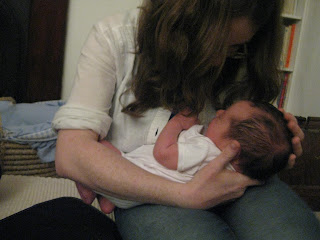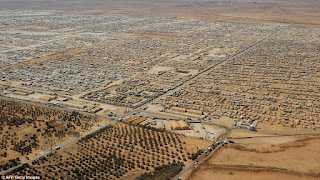Corona virus was never a threat lurking around a corner.
Corona virus was never a threat lurking around a corner. Or, can I correct myself there, the virus itself - my conceptualisation of its spiky balled glueyness, the way it lay in the thick lining of your throat and then got transported down to stick on your lungs, making them heavier, deflating them, adding a bruising feeling to the way they re-inflated.
This was not because I was so far removed from my own mortality to be oblivious to disease in general. I've always recognised it as a strange twist in logic that those who are - at least on the surface level - the most reckless with regard their own physical safety are also those who are most in-tune with mortality.
Like many, I became familiar with the word corona before I was told how it attacked the body. I imagined, in line with the orthodoxy purveyed to us back then, that it would dehabilitate, suck out all the standing in these fragile bodies we relied upon for all, or almost all, value we attached to the concept of livelihood. When I learnt, just before the UK went into lockdown, that corona was a variant of the flu, I was shocked that so many public policy hours, pounds, airtime, was being devoted to this thing.
How can we envelope the flu in words and seek to spin it out, measure and quantify it despite the deep-set understanding of its elusive nature, and then give a nation state justification to remove the public right to move, to gather, and - perhaps the most hallowed concept in our current point in political history - to generate a livelihood.
Fast forward eleven months, and Trump, Bolsanaro and Modi are all playing on themes of my initial bewilderment to bolster their chosen path of inaction. Below them, hospitals spew out patients, chaos ensues. Fear starts to stem from the virus itself, rather than the ways in which governments might use them to curtail our most basic rights.
However, none of the newsreel I could see made me feel threatened by the virus. The stories I heard from elderly neighbours whose spouses had been whisked off to hospital and killed inside when they contracted the virus enforced a clear awareness of my duty to others. If I was coughing, I would make sure my saliva didn't reach the the basket I carried at the supermarket, or the handrail on the underground lift. I would run around the lax pedestrians- particularly if one had a blue rinse, or was in a wheel chair, or seemed otherwise infirm.
In the background, I was also loosing many of the things I had previously anchored to in order to build a vision of the world I wanted my children to embrace.
In this context, my biggest fear, shared by many parents in urban and economically stratified societies, is that my children will grow up unconvinced - unconvinced that life is worth the living, that the world is worth protecting, that we should fight to protect the lives of strangers who give us, as individuals, no immediate advantage.
I would log on, in my own personal iteration of post-industrial, service-based duties, and hear the stories of my superiors and peers. One was building a log cabin in his garden. He posted the photograph of this in April 2020. There were no fences around the borders of the picture. Just bramble and grass. This was like a fairy tale - with no geographical link to the two bedroom flat in the housing estate I lived in with the three people whose upkeep I was financially responsible for. Another woman based in a shire somewhere declared that for her, the plinth or pinnacle of the pandemic was the observation that her children "had not been in the car for six weeks". She said this with the abandon that lay right in the heart of all the forceful and authentic statements that started sprouting from the corporate world around that time "this isn't my professional photograph - my professional photograph is the one with bags under my eyes because I've been up since seven on the school run". It was all so laced in the solidity of boundaries that define a particular social class, made both more forceful and more hypocritical by the sense that the proponents were dropping the cover, showing the real them, doing away with pretensions.
There was no doubt, the current circumstances impacted people in a way that was so clearly defined by class that messages proclaimed by one group became inaudible and incomprehensible to another. How dare that person leave his home to walk the streets? How could that prime minister sit around in his garden when we don't have one? How can a restaurant owner be threatening public health in this way?.
The dislocation between the person speaking and the person listening gave rise to gross mistrust - mistrust that the virus was as mild as claimed, or that it was real, or that institutions were accurately reporting on its occurrence, mistrust that the government's intentions were in-line with what they claimed them to be.
Even I found myself overtly lying that I had taken a test, or tested my children, so I could free myself from the constant suspicion that had taken hold - even when the pharmacies were all out of tests.
Slowly the circumstances shifted so that suspicion itself had more leverage. There was a premium on being sure of something that everyone knew you couldn't really be sure of anyway. Of claiming to be able to measure and quantify - thus claim hegemony over - an agile and escapist natural phenomenon - a virus that mutates so it can carry on living inside us.
I completely understood vaccine scepticism. Not because I questioned any of the science behind vaccines, or (at least til they started giving us boosters when only 3% of people living in sub-Saharan Africa have received one dose) suspected any cohesive or thought-out ill-intent attached to public calls to vaccinate the UK population. Instead, because I knew that an argument has no force if we aren't allowed, in principal, to hear the counter argument. And while my scepticism didn't push me out to the streets to protest vaccination, I was aware that public discourse around Corona was already incredibly insipid.
I didn't like all the (fulfilled) public calls for Youtube and Facebook to remove content that spread vaccine conspiracies - not just because there is a clear political utility in making people sceptical of a vaccine they would never have the chance to try anyway - but because it was clear that no-one - scientifically trained or otherwise - really "knew" how to control (or even identify or measure) this variant of the flu. As we all knew anyway, the flu eluded urban populations well before this language we use now developed. At certain points in history, it also killed whole swaths of populations who hadn't had prior exposure to its particular variant.
I did, however, think that refusing to accept a free vaccine granted to you by the NHS was selfish. Particularly if you were from the mobile minority who might find themselves situations where they could infect people who had never been given the option to be vaccinated.
Today, sitting in the two bedroom flat on day 8, without any certainty as to when I can emerge, or when my children will stop screaming, I am most surprised by the absence of agency in the discourse I hear from my peers: "You have to stay in until day 10". "They changed it - now you can stay in until day 7". "I cheated sometimes, just to get fresh air". Every statement seems to be premised on the requirement to abide by the law (or desire to float it), rather than responsibility for other people.
I couldn't care less if I am abiding by the law. My main objective in staying inside is that nobody's life should end faster because of my desire to go to a coffee shop. This statement, of course, is premised on my confidence - which I'm aware cannot be shared by everyone who lives in the UK today - that my neighbours will not inform the secret police of my movements, or that I am unlikely to be arrested, on trumped up or circumstantial grounds, walking down the street at any moment.
I think, by this age, I had already learned the distinction between the law and what is right. Certainly I was aware of the theoretical distinction.
When I was in the Middle East, I knew abuse of power by police who beat people up or, more subtly, just ensured they consistently remembered their own lack of agency in every encounter with the authorities.
However, I can't say for sure that, as my children certainly have, I grew up believing that the law that the adults I saw walk around the street were bound by was arbitrary or ungrounded, or that it shifted so obviously at the whim of political interest.
I might have gone to protests with my mother as a child, but growing up as part of the ordained ethnic and socio-economic majority in the 1990s didn't really reinforce the meaning of injustice and inequality. I had to wait until I was a teenager to see that.
So, besides its isolating and incriminating impact on individuals, the pandemic's most worrying lasting effect is that my children might doubt the potential of law to articulate justice. That they might feel so far removed from the objectives of the government that they turn to other authorities that they see as more representative of their own will, and the will of the invisible communities around them. Of course, authorities that are not governments and have never been effectively co-opted by governments, have always existed - I am invoking an ostensibly secular one when I claim I understand the distinction between what is right and the law.
This brings me back in full circle. The pandemic has shown my children that individuals can justly float the law - to protect themselves and others in various ways. Seeing this at an early age irrevocably breaks down the association between the law and justice in their minds. It means they might resort to other systems in their desire for justice. It also means they might be more ready to accept a government whose authority is not primarily premised on the ability to articulate and enforce justice - which can only mean terrible things for the democracy we are still trying to keep on life support.


Comments
Post a Comment